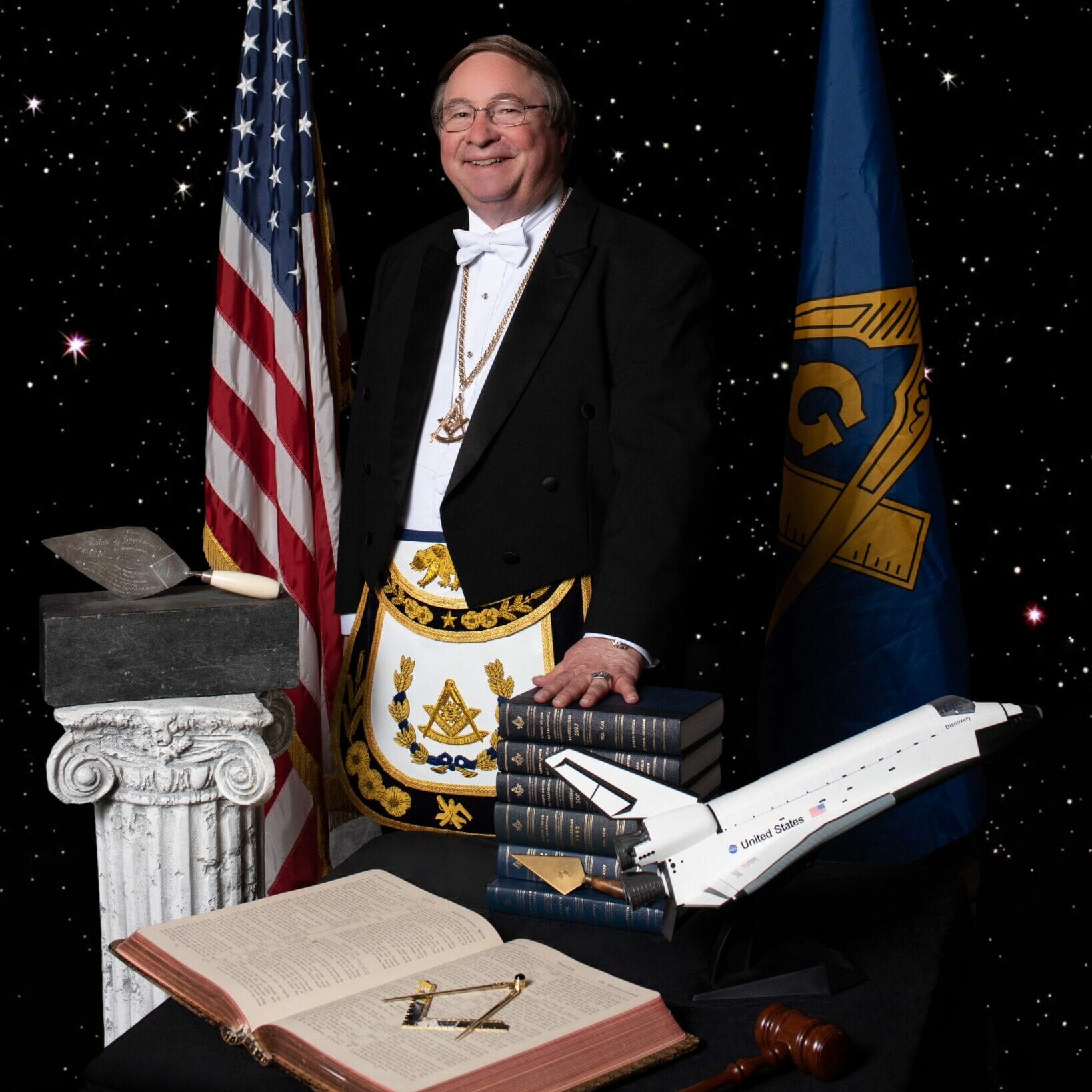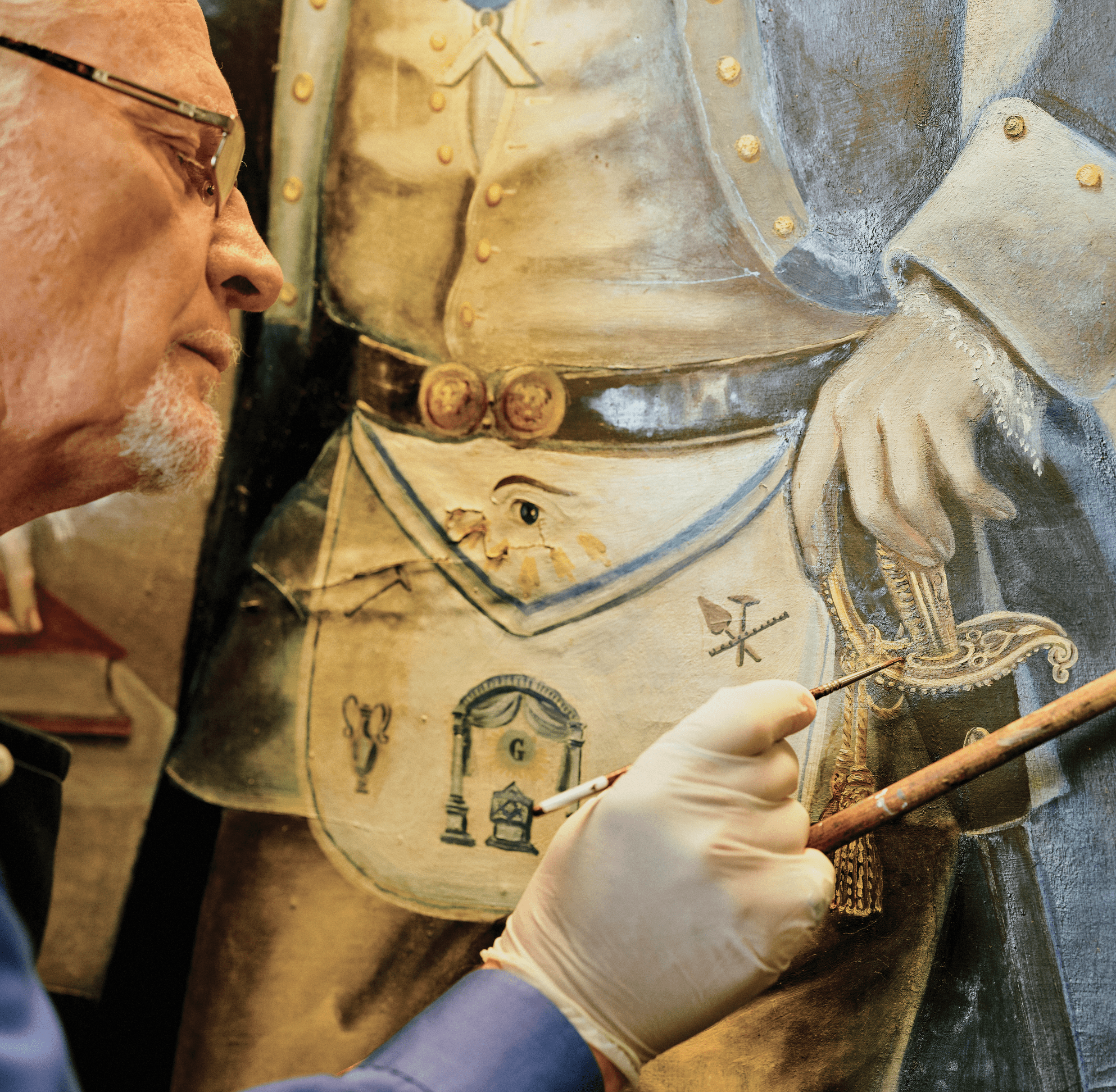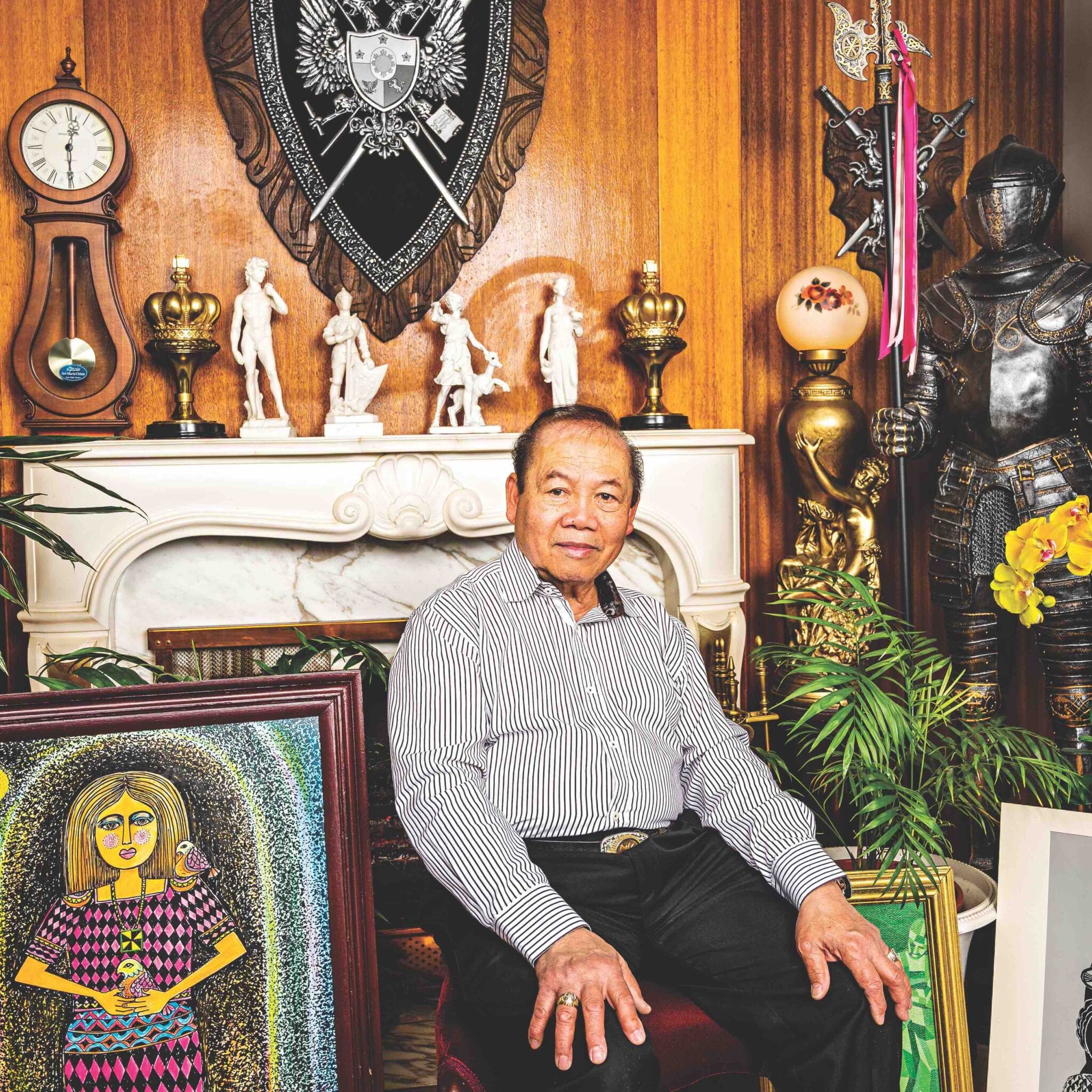
Executive Message: Pride and Heritage
Grand Master Arthur Weiss on a historic international connection.
By Drea Muldavin
Over a year ago, as the COVID-19 crisis was first ballooning into an international pandemic, it quickly became clear to staff at the Masonic Homes of California that the virus wasn’t only a threat to their staff and residents’ physical health. With so much focus on the disease itself, the importance of mental health—particularly for seniors, the demographic most susceptible to the virus—was lost in the shuffle. But the pandemic was taking its toll on their psyche, too. For elderly residents, that meant being cut off from friends and family, while also being at the center of frightening pandemic-related news stories and statistics. The Kaiser Family Foundation reported last summer that one in four seniors expressed feelings of anxiety or depression, a substantial jump from pre-pandemic levels. For staff members shouldering an enormous and stressful burden, a similar situation was playing out.
Leaders at the senior care community recognized that in order to provide the kind of services they are known for, it was imperative to address those needs. The result has been an important new partnership that exemplifies the Masonic commitment to holistic care.
The new program virtually brings together residents and staff members at the Masonic Homes campuses in Union City and Covina with counselors and experts from the Masonic Center for Youth and Families. Typically, MCYAF provides comprehensive mental health services to children and young adults (ages 4-24) and their families, as well as Masons of all ages. The onset of the pandemic saw an increase in telehealth visits for MCYAF across the age span and, crucially, shed light on the needs of seniors who weren’t necessarily seeking traditional therapy but who still required some level of support. So in response to what was threatening to transform into an emotional and physiological crisis for seniors, leaders launched a plan to bring the mental health expertise of MCYAF to bear on the Masonic Homes campuses. Now, more than a year later, the program has been so successful that it is expected to become permanent, even after the last of the COVID-19 restrictions are finally lifted.
The first prong in the plan was the rollout of a Virtual Visitor program, whereby staff at the Masonic Homes provided Zoom-enabled computers and tablets (and tech support) to residents that they could use to connect with loved ones, while MCYAF made its team of counselors and therapists available for impromptu video calls—often as simple as a friendly hello and a chat. At the Union City campus alone, staff members helped facilitate some 2,263 video visits for memory care residents with family between May 2020 and February 2021.
Even small, virtual connections like that play an important role in seniors’ overall mental and physical health—and having a direct line to a licensed counselor is doubly important for people of a generation for whom mental health care was often stigmatized. “With the virtual visits, it’s a friendly visit, sharing stories with one another, talking about their days,” says MCYAF programs manager Jodi Mikel. For those in need of further services, MCYAF clinicians were available to arrange online therapy sessions.
Meanwhile, staff members at the Homes were able to speak with MCYAF counselors about managing stress and anxiety. What began as casual online check-ins soon developed into robust conversations, shared childhood memories, exchanges of family photos, and even online visits with pets. “It’s not therapy—it’s a friendly visit,” explains Kimberly Rich, the executive director of MCYAF.
The need for that sort of connection remains great: Even before the pandemic and subsequent shutdown—which saw nursing homes like MHC largely closed to visitors—one in five adults over 55 were reported to experience some type of mental health concern, according to the CDC’s Healthy Aging Program. And loneliness and social isolation can be enormous issues for older adults. Studies show they are associated with a 50 percent increased risk of developing dementia among the elderly, and a 30 percent increased risk of stroke or heart disease. And yet many seniors are still wary of asking for help.
Combatting loneliness, then, is an important health matter. According to the Journal of the American Medical Association, seniors with access to high-quality social connections reported greater emotional resilience during the pandemic even than younger adults. By offering a friendly ear or sharing pictures of a favorite pet, counselors from MYCAF were able to help those at the Masonic Homes ride out the worst of the pandemic in a supportive, safe environment. And for those with more acute needs, a fully licensed counselor was there at the ready. And that’s a development that will outlive the COVID-19 crisis.
“We’re seeing a shift around the stigma associated with mental health services,” Rich says. “It’s really normalized the idea that everybody needs emotional support when they’re going through a difficult time.”

RELIEF FOR CALIFORNIA MASONS AND THEIR FAMILIES
Contact us today to access your member benefits and services:
masonichome.org
(888) 466-3642
mcyaf.org
(877) 488-6293 (San Francisco)
(626) 251-2300 (Covina)
PHOTO-ILLUSTRATION BY:
Alamy

Grand Master Arthur Weiss on a historic international connection.

